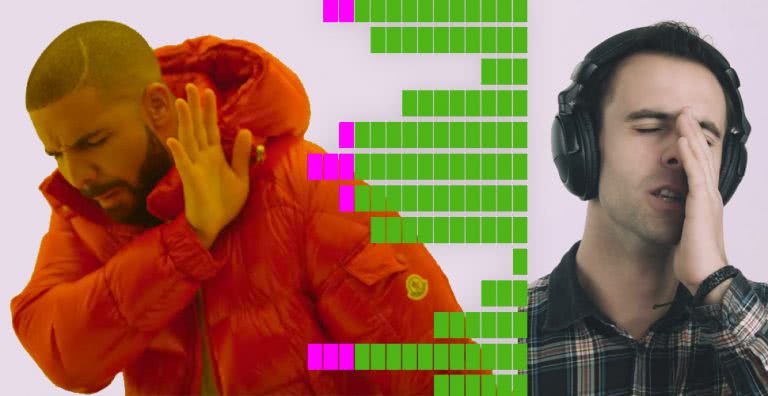Between rowdy club shows with PA system that blare with distorted bass and feedback, 3-day mega-festivals that serve up a combo of electronic drops and booming hip hop beats and drowning out the noise of your co-workers with an intense headphone listening session, we can often put our hearing at risk without even realising the sustained damage we’re causing.
The typical face we associate with noise-induced hearing loss is an aged rocker who has since stopped caring about most aspects of their health. However, the problem is extremely common – according to Australian Government statistics, in 2005 around 3.55 million Australians had some hearing loss, with 99.7% falling into the 15 years or older age group.
If you’re like us, and your life’s joy is mostly elicited through experiencing music, you’d probably like to keep at it forever, devouring every detail. You’ll always want to hear every steel-percussive hit of a new Slipknot banger, or the hazy crescendo of tremolo picks on your favourite shoegaze records.
There are plenty of ways to prevent your hearing from deteriorating – and this doesn’t mean plaguing yourself to a life of listening to nothing but a-tonal piano numbers and never attending a gig again. But first, here’s a quick rundown of what the condition actually entails.
What is noise-induced hearing loss?
Basically, noise-induced hearing loss is harm done to the inner ear, due to overexposure to excessively loud sound.
Although your parents may have thought that listening to Master Of Puppets on repeat for 5 years straight was unnecessary “excessively loud sound”, it refers to sounds at or above 85 decibels. Repeated exposure to 85 decibels or more can, unfortunately, cause hearing loss.
The symptoms of the condition can range – if you find sounds becoming muffled or distorted over time, or start to find ti difficult to understand other people when they talk, you could be experiencing some hearing loss.
Love Music?
Get your daily dose of metal, rock, indie, pop, and everything else in between.
However, there’s no need to fear for your ears – here are 4 easy ways you can incorporate “hearing health” into your life to keep your ears primed for Tool’s next album when it arrives eventually.
How to prevent noise-induced hearing loss
1. Stay safe with speakers
Sharing music is one of life’s greatest joys. Next time you’re at home, opt for listening to your favourite tunes with speakers rather than headphones, allowing your ears take a well-needed break all while introducing your housemates/mum/cat to your fire playlists.
Yamaha’s MusicCast 50 is the perfect home speaker for sharing music. With its hi-res audio and room-filling capabilities at the forefront of its design, there’ll be no need to for you to crank it beyond 11 to get the broadest and most encompassing playthrough of your favourite records.
With Alexa connectivity, you can easily ask you Multicast to adjust the volume to suit your needs more appropriately – and with in-built Spotify connectivity, you’ll be delving into a whole new world of music in the knowledge your hearing is being sustained.
Yamaha MusicCast 50 Wireless Speaker

2. Headphone volume
Although your commute may require Architects’ Doomsday at full-volume to perpetuate all of you total-nihilist feelings, it may be wiser to opt for a less intense morning jam of the metalcore banger.
Listening to music at full-volume through your headphones exposes you to 105 decibels – continual exposure to this will, unfortunately, contribute to hearing loss, so we ask kindly to keep it down.
How loud should your headphones be?

3. Protect your ears at gigs
Yes, we all have that one mate who’ll be the first to cry lame if you pull out a packet of earplugs just before the headliner hits the stage, however when you’re the only one who’ll hear the subtle nuances and sonic ebbs and flows of an epic live show in ten years time, we’re sure the shame will have passed.
Any convenience store or chemist nearby your favourite venue should sell earplugs (that look something like this). We promise you’ll still get the full gig experience, with your hearing moulding to the sound of the earplugs after just a few minutes of wearing. They make look small, but you’ll notice a serious absence of ringing in your ears during your post-gig Maccas feed.
Travis Scott – Goosebumps (Loudest Concert Ever)
https://www.youtube.com/watch?v=tc8zDiKhPeg
4. Get tested
Last but not least, if you’re educated on early onset symptoms, noise-induced hearing loss can be prevented. An audiologist or audiometricist, will be able to perform hearing tests to give you insight into the specifics of your hearing loss, giving you the info you need to take further steps in protecting your hearing.

































